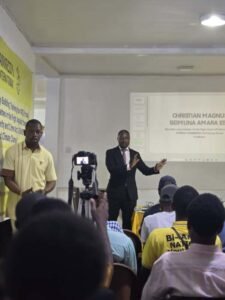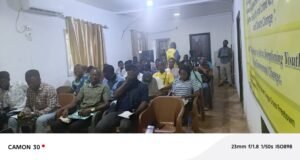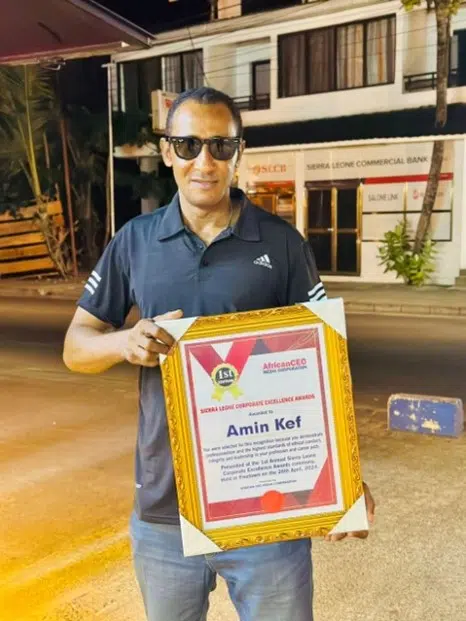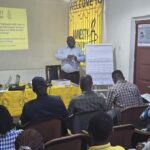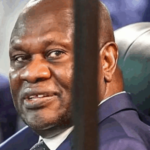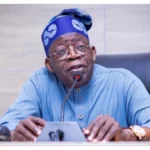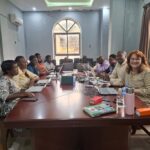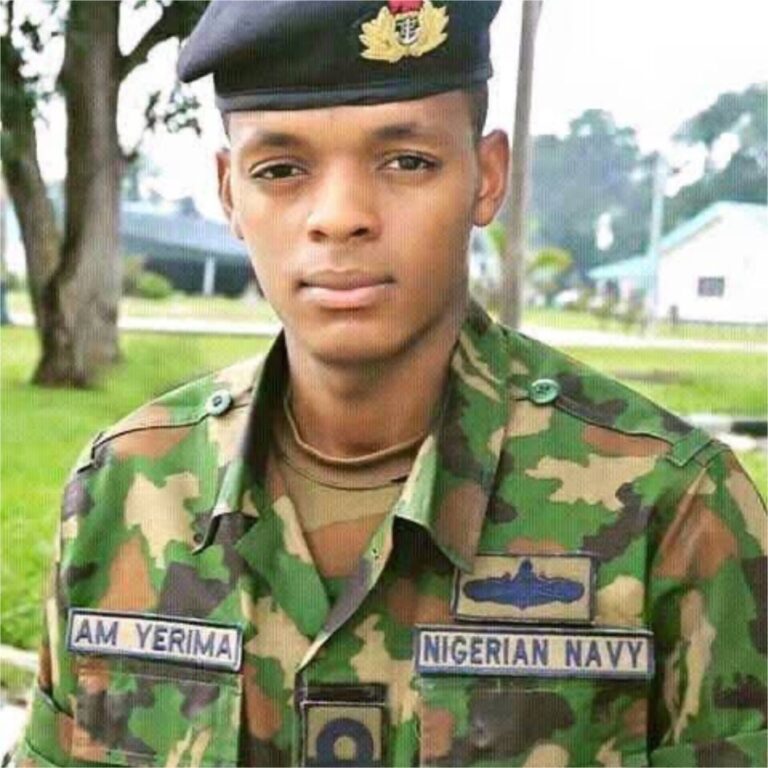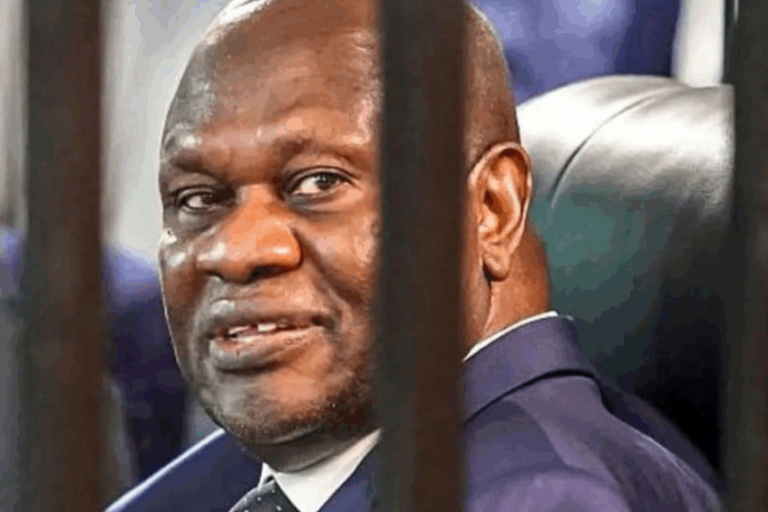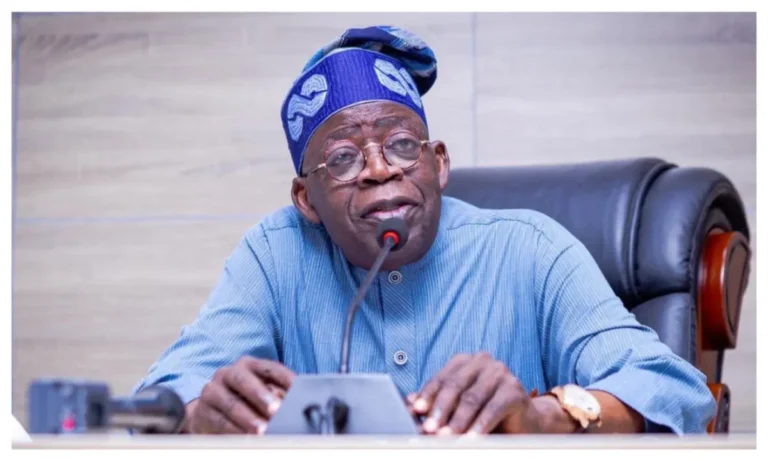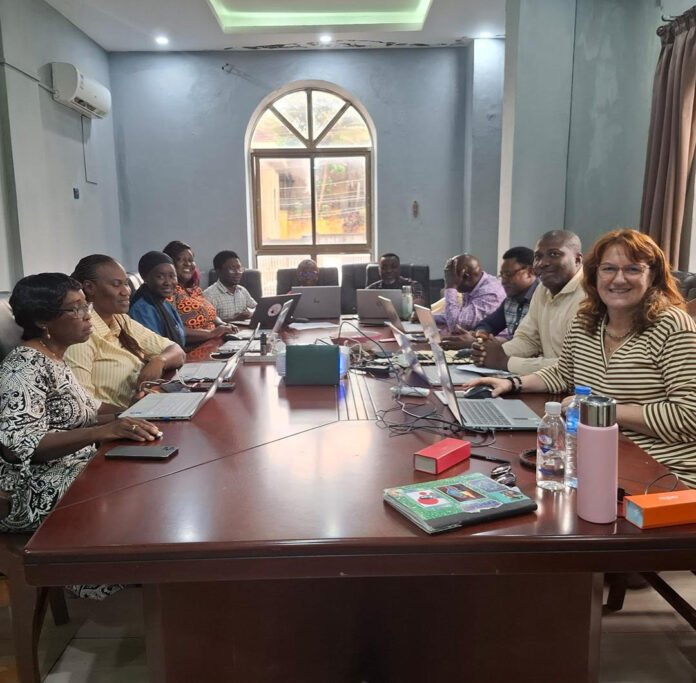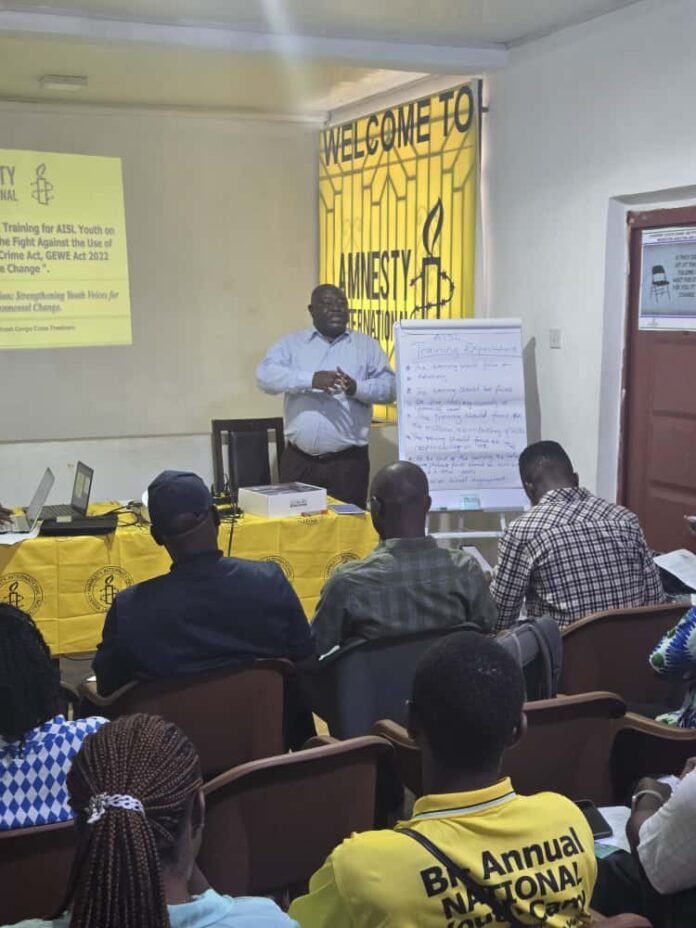
By Ibrahim Sesay
Amnesty International Sierra Leone (AISL) has launched a two-day youth empowerment and capacity-building training aimed at enhancing the advocacy and leadership skills of young people across the country. The training, which began on Thursday, November 13, 2025, at the AISL National Secretariat in Freetown, is being held under the theme: “From Knowledge to Action: Strengthening Youth Voices for Social and Environmental Change.”
In his opening address, Solomon M. Sogbandi, Executive Director of AISL, emphasized the importance of building the capacity of youth members to effectively address pressing social issues such as drug abuse, cyber security, gender equality and climate change.
“We believe that if you don’t empower your membership, they would not be able to know the issues and address them adequately,” Solomon M. Sogbandi noted. “The membership is the strength of the institution, so it’s our duty to train them to understand the issues and engage stakeholders at community, school or national levels.”
Solomon M. Sogbandi further highlighted that Amnesty International’s revised global strategy places stronger emphasis on youth engagement, describing young people as “key drivers of social transformation.” He encouraged participants to view themselves as leaders of today rather than the future, adding, “We have to look at what they can do now and how they can prepare themselves for leadership roles.”
Also speaking at the event, Jaiah Kaikai, Campaigns and Growth Officer at AISL, said the participants were selected from all regions of Sierra Leone to ensure inclusivity and representation.
“We have youth members drawn from the East, North South, and Western regions,” Jaiah Kaikai explained. “Amnesty International is a movement organization with a broad youth base and this training brings them together to strengthen their advocacy skills.”
He added that the goal of the program is to prepare participants to act as ambassadors in their respective communities, raising awareness on key national issues. “The youth constitute the bulk of this country’s population and using them as forerunners for advocacy could be the most effective approach,” he stressed.
The first day of the training featured a presentation by legal practitioner Christian M. B. Amara, who discussed the Cyber Security and Crime Act. He highlighted key components of the legislation, including legal safeguards, institutional frameworks and penalties for violations.
Participants expressed deep satisfaction with the day’s sessions, describing them as both practical and inspiring.
“I’ve learned that advocacy is not just about talking but about taking action and engaging the right stakeholders,” said Jeneba Kamara, a youth representative from the Eastern Region. “I’m now more confident to lead awareness efforts in my community, especially on drug abuse and women’s empowerment.”
Another participant, Issa Kanu, praised Amnesty International for its continued commitment to youth development, noting that such initiatives create opportunities for young leaders to influence positive change.
The training continued on Friday with sessions on Sierra Leone’s recent gender laws and related policy frameworks aimed at promoting equality and inclusion.
